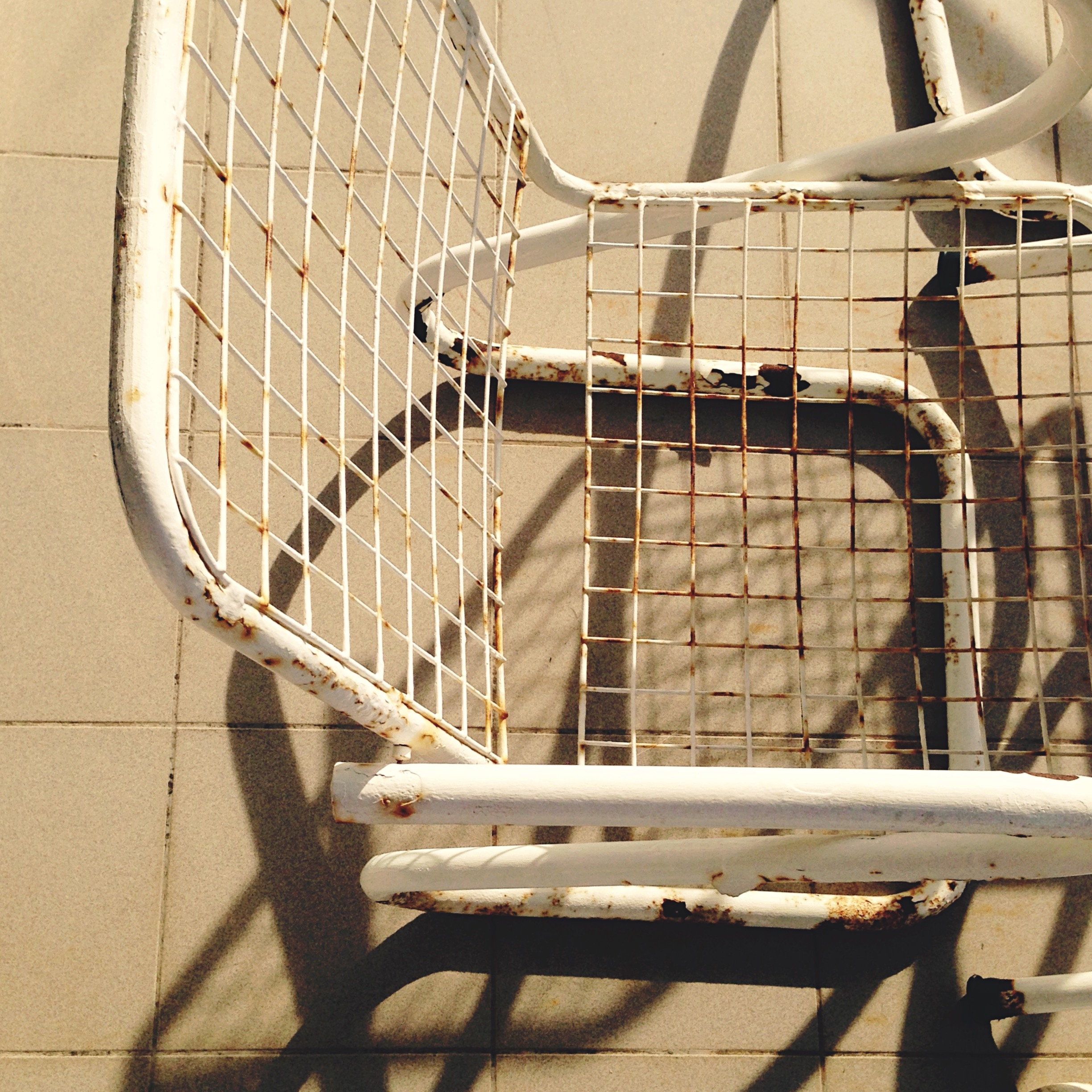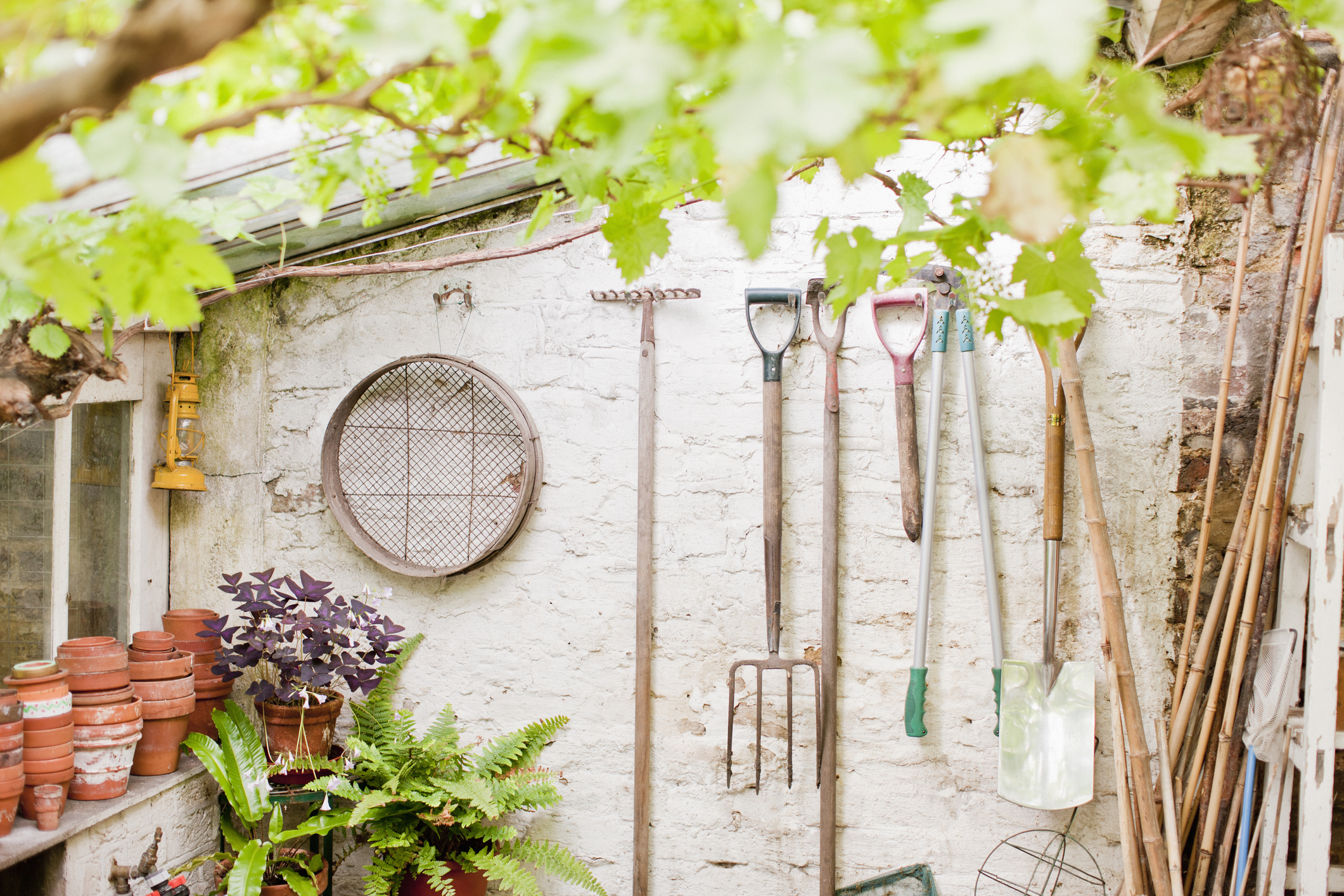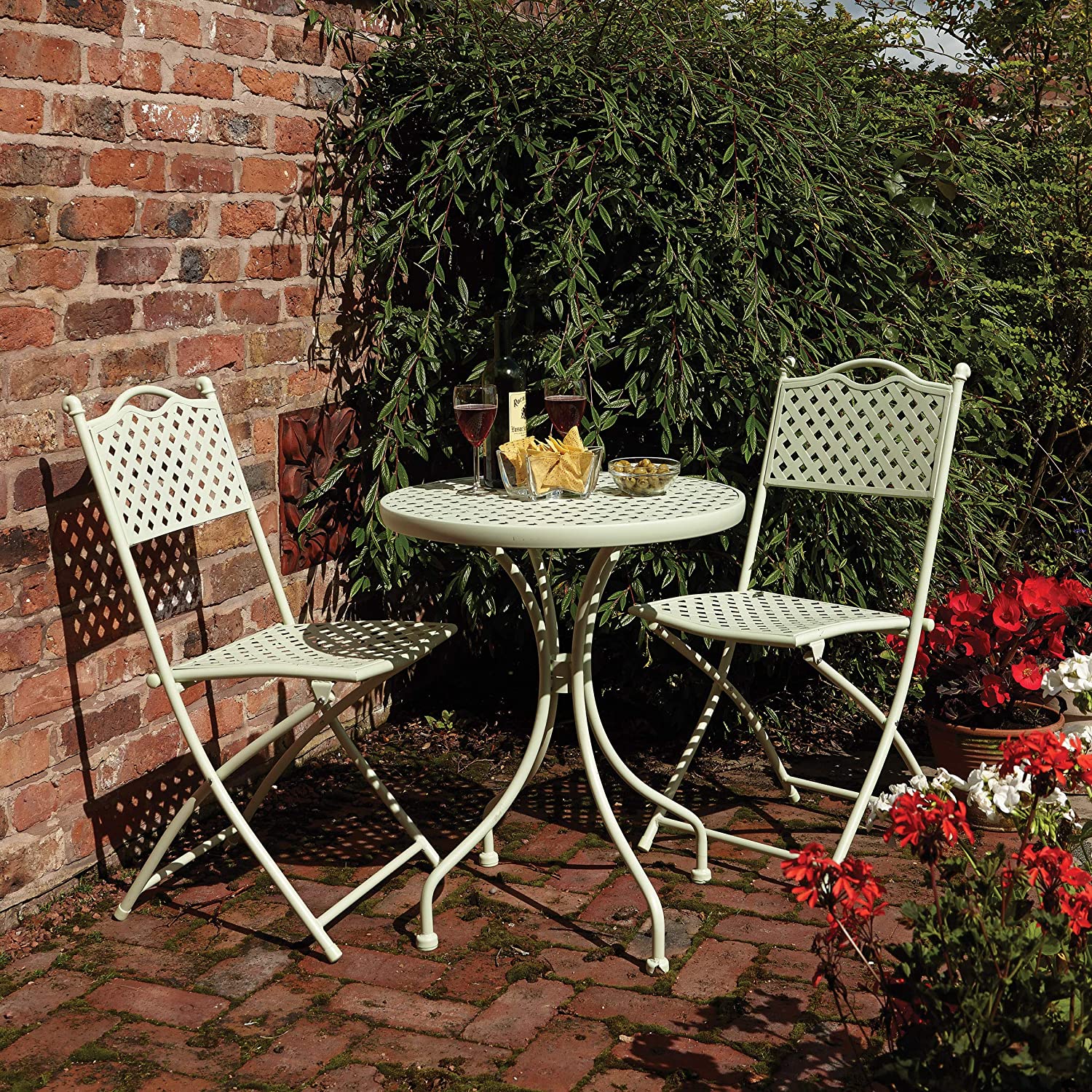How to remove rust from metal – the best home remedies for furniture, tools and more
Removing rust from metal furniture, tools and more is easy. Use vinegar, baking soda, citric acid and other home remedies for great results


Rust, where do we start? Not only is that ghastly orange brown color beyond unsightly, but it can also ruin patio furniture, tools and other home items so it's important to remove rust from metal as soon as you spot it.
Thankfully there are plenty of home remedies to help clean up metal and rid your favorite items from rust fast. Think vinegar, baking soda, dish soap like Dawn and even potato...
- Need to refresh your patio set? Here is the best garden furniture around.
First, how does rust happen in the first place? Mini science lesson incoming. The iron reacts with H20 and oxygen which creates rust, otherwise known as a hydrated iron oxide. In Layman's terms, rust creeps up when things are left in the rain... (You know you've done it). Keep scrolling, grab your cleaning tools and your gloves and get ready to successfully tackle the rust on all your metal items at home.
How to remove rust from metal with vinegar
Placing metal tools, rusty pots and pans plus and other heavily rusted items in a white vinegar bath is really effective. Submerge everything fully and leave them overnight. Then scrub with steel wool or a scouring pad if delicate or thin metal, plus a little elbow grease once done, the rust will come off nicely.
It could take two goes if your items are far gone.
- See how cleaning with vinegar is the way forward.

How to remove rust from tools with baking soda
This method works well on rusty tools if you want an alternative to vinegar, and it will help on small metal plant pots and similar items also. You can either make a paste with baking soda and water, applying and scrubbing this in with a toothbrush on rusted areas directly. Or, if you have a more heavily rusted item, clean it and whilst still wet, sprinkle the baking soda directly onto the affected areas. Leave this for an hour or so and then scrub off the rust with your steel wool or other cleaning tool of choice.
How to remove rust from sinks and surfaces
Potatoes aren't just for French fries, oh no. They contain contain oxalic acid which actually dissolves rust and so works a treat when you want to remove rust from a sink or another lightly affected surface. Start by slice a potato into two, then coat the open end with Dawn or another dish soap. Next sprinkle baking soda (salt works if you're all out) onto the potato and rub it over the rusted area. The combination of the abrasiveness from the salt/baking soda and the cleaning plus dissolving power from the potato and the dish soap should disintegrate the rust nicely. Clean the gunk off and dry thoroughly.
Get small space home decor ideas, celeb inspiration, DIY tips and more, straight to your inbox!
- Find more baking soda cleaning tips in our guide.
How to remove rust from metal with citric acid
Another easy to find product, use this method on unpainted surfaces like tools and the likes as it will strip paint. Combine 2 cups warm water with 2 tbsp citric acid and submerge the items if possible and for a few hours at least, overnight is best. Use a scouring pad to scrub away the residue, rinse and dry thoroughly with a clean cloth.
- Cleaning stainless steel? We can help.
How to remove rust from metal before painting it
You need a clean slate before you paint metal furniture. And to clean off debris and rust from garden furniture you want to up-cycle or maybe a dining table and chairs, elbow grease and a scouring or Brillo pad is your answer. Combine this with one of the above methods, if you want the natural route, for good results. Note that citric acid will strip paint so make sure it's completely rinsed off before you prime your objects.
Failing that, something super strong like Evapo-Rust® will do the trick. Ensure you read the instructions fully.
- Learn how to paint metal railings if that's on your DIY list too.

How to prevent rust in the first place
- Cover and protect: Keep patio furniture in a garage or under good quality covers when it's drizzly. If they get caught out, dry them asap.
- Dry as you go: Chef's knives and other metal items in the kitchen should be dried as soon as they are washed up, then stowed away.
- Oil where you can: For tools, something like WD40 can help prevent rust occurring, which isideal on secateurs and other garden tools also. You can use mineral oil on knives.
- Just like new 👌

I'm Cam, the former deputy editor of Real Homes who worked on the site from 2020 to 2023. As a renter myself, sharing a home with two friends (and my cat) in London, I know all too well the challenges that this can pose when it comes to creating your perfect setup. As someone who has always loved everything interior design-related, I cannot rest until a home feels right and I am really passionate about helping others get there too, no matter what their living situation, style, or budget may be. It’s not always the easiest to figure out, but the journey is fun and the results are so worth it.
After interior design, travel, art, and photography are my next big passions. When I’m not writing or editing homes content, I’m usually tapping into other creative outlets, exploring galleries in London or further afield, taking photos, scribbling, or drawing!